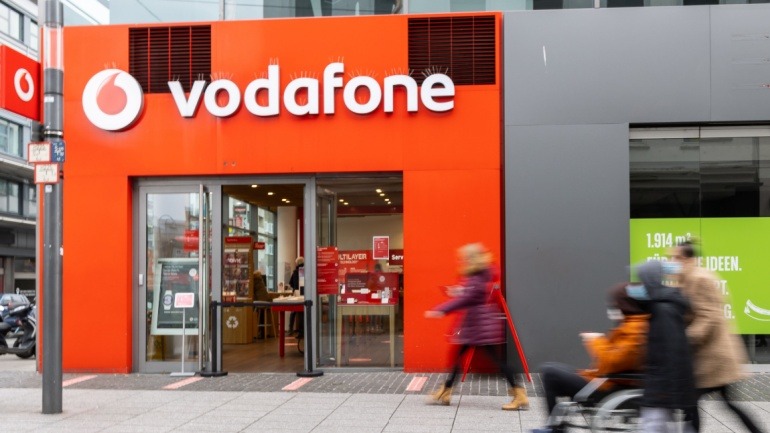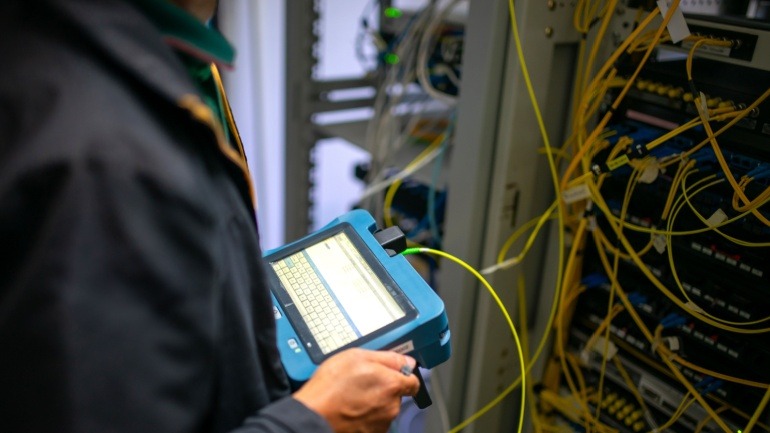Telefónica Deutschland’s AI-powered assistants enhance VoIP security by tackling online fraud, including phishing scams. By leveraging artificial intelligence and partnerships, like with OpenAI, Telefónica fortifies its consumer security offerings. As VoIP security evolves, the integration of AI not only boosts customer trust but also raises privacy considerations requiring careful navigation.
AT&T’s strategic focus on fixed broadband is reshaping their approach to customer retention, as emphasized by CEO John Stankey at the UBS Global Media & Communications Conference. With growing competition from Verizon and T-Mobile, AT&T aims to harness fiber’s potential for converged services and target underserved demographics, ensuring a competitive edge.
Amazon’s robust $35 billion investment plan underscores its commitment to shaping India’s digital landscape, with an eye on AI-driven advances and e-commerce expansion. This financial infusion aims to bolster small businesses, as well as create 1 million jobs by 2030. Competing with tech giants like Microsoft, Amazon champions a progressive vision.
Simwood is revolutionizing VoIP communication by integrating WhatsApp for Business into their global network. This innovation allows enterprises using platforms like Microsoft Teams to seamlessly communicate with over three billion WhatsApp users. Carriers and service providers can now offer enhanced customer engagement through voice and text functionalities, leveraging Simwood’s reliable software-defined infrastructure.
As reactive network planning fades, AI emerges as a game-changer for VoIP solutions, offering real-time data analysis and proactive management. With AI, VoIP networks can self-optimize, predict maintenance needs, and ensure seamless service even with rising 5G traffic demands. Embrace AI for efficient and futuristic VoIP network strategies.
The digital innovation landscape is buzzing with Vodafone and Sumitomo JV Pairpoint, a frontrunner in VoIP technology. Recently securing €30 million investment, Pairpoint aims to enhance blockchain and IoT platforms, expanding globally. Their focus on strategic realignment and embracing cutting-edge technology showcases revolutionary potential in the VoIP industry.
Generative AI is set to revolutionize telecommunications by moving operations from reactive to predictive systems, significantly impacting VoIP services. With Gen AI, telecom operators can experience faster troubleshooting and enhanced fraud detection, streamlining VoIP network efficiency. Properly implemented, Gen AI promises rapid results with lower costs, reshaping the VoIP landscape.
Arcus Infrastructure Partners is spearheading a strategic move into digital infrastructure with the closing of its European Infrastructure Fund 4. This highlights the soaring interest in digital infrastructure investment driven by rising connectivity demands. Arcus aims to diversify across sectors, including renewable energy, reflecting broader industry trends towards sustainable growth and technology integration.
The Connected World KSA Awards in Riyadh marked a significant milestone in digital transformation. Distinguished organizations excelled in innovation and connectivity. This event underscored Saudi Arabia’s commitment to becoming a tech hub, recognizing breakthroughs in digital infrastructure, AI, and talent development, signaling its rising impact on the global technology landscape.
Explore the dynamic changes in the UK’s digital landscape with Gigaclear, Digital 9 Infrastructure, and Arqiva’s valuation shifts. The increasing demand for faster, reliable internet drives robust growth in fiber and broadband services. Meanwhile, market trends continue to highlight the essential advancement of VoIP technology and connectivity solutions.













